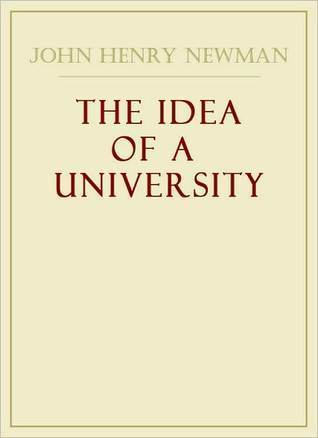What do you think?
Rate this book


659 pages, Kindle Edition
First published January 1, 1873
‘all boys are more or less inaccurate, because they are boys; boyishness of mind means inaccuracy. Boys cannot deliver a message, or execute an order, or relate an occurrence, without a blunder. They do not rouse up their attention and reflect; they do not like the trouble of it: they cannot look at anything steadily; and, when they attempt to write, off they go in a rigmarole of words, which does them no good, and never would, though they scribbled themes till they wrote their fingers off.’Bearing this in mind, reader, proceed at your own risk.
Religious doctrine is knowledge, in as full a sense as Newton's doctrine is knowledge. University Teaching without Theology is simply unphilosophical. Theology has at least as good a right to claim a place there as Astronomy.